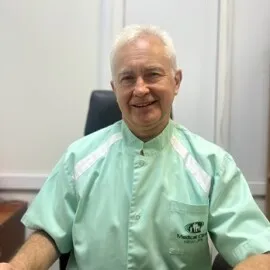A pilonidal sinus (PNS), also known as a pilonidal cyst, pilonidal fistula, or “hair nest,” is a congenital defect in the form of a narrow canal (2–3 cm long) located in the soft tissues between the buttocks, above the anal opening. This canal is lined with epithelium and has primary openings through which sweat gland secretions, sebaceous gland products, and hair follicles exit. If these openings become blocked, inflammation may develop.
PNS is formed due to embryonic development disorders and affects about 5% of the population, mostly men aged 15–30. The condition often remains asymptomatic for a long time, except for occasional mild discharge or itching. However, blockage of the openings or trauma can trigger inflammation and lead to an abscess, which may rupture spontaneously. If left untreated, a chronic fistula may form, allowing continuous discharge of pus.















































